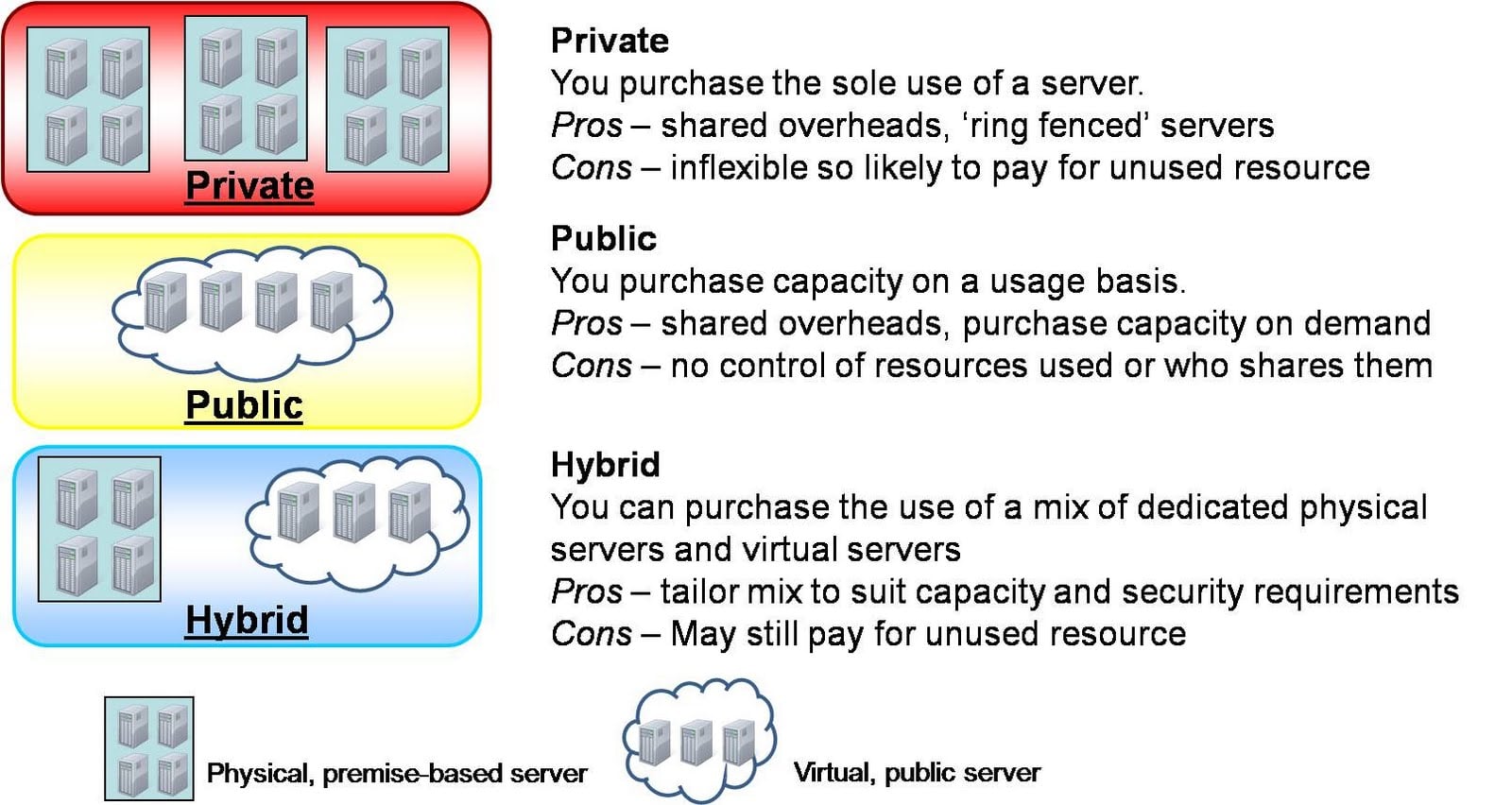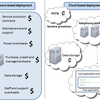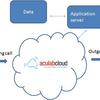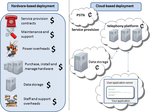If the thought of storing critical, personal or sensitive information in a place that to all intents and purposes is completely out of your control makes you feel a tad uneasy – you’re not alone. Using the cloud, particularly in relation to data, is a bone of contention, but there are options for you to choose from, each with its own merits.

Private cloud vs premise-based private cloud
For further information and an interesting discussion of cloud types, you may wish to take a peek at the following.
A good look at the pros and cons of private cloud http://www.infoworld.com/t/cloud-computing/what-the-private-cloud-really-means-463
Insight into the private to public migration strategy http://news.idg.no/cw/art.cfm?id=347D6243-1A64-67EA-E42E7EE0D7A2FDD4
In the the premise-based sense http://venturebeat.com/2010/12/06/cloud-computing-public-private-hybrid-demistified/#
In the IaaS-based sense http://www.theregister.co.uk/2009/08/24/virtualization_and_cloud/
Aculab Cloud lets you keep your application and data out of the cloud – have a look at Aculab Cloud’s architecture. It shows that there is flexibility in how you wish to migrate to cloud.
Faye McClenahan
Aculab Blogger
A previous blog post introduced the idea that services (IaaS, PaaS and CaaS) can be deployed in three different types of cloud - private, public or hybrid (there are more variations out there, but those are the key ones for you to consider at this early stage). Which is the best option for you, really depends on what you’re looking to achieve. It may be useful to think about your top priorities, for example, ‘risk aversion’ or ‘cost reduction’?
It’s virtually your choice
What’s the key factor that sets cloud categories apart? For ease of illustration I shall focus on the provision of IaaS, and it really all boils down to server type. That’s not a question of whether it’s Dell or Intel – what we’re talking about is physical machines that are dedicated to you and that you can see or go visit, if you wanted to or virtual ones that you can use, but must share with others and couldn’t readily visit, even if you wanted to, because you’d have no idea where they’re located.
What’s the key factor that sets cloud categories apart? For ease of illustration I shall focus on the provision of IaaS, and it really all boils down to server type. That’s not a question of whether it’s Dell or Intel – what we’re talking about is physical machines that are dedicated to you and that you can see or go visit, if you wanted to or virtual ones that you can use, but must share with others and couldn’t readily visit, even if you wanted to, because you’d have no idea where they’re located.
So with that in mind, let’s take a look at each cloud model, the server type used and the headline pros and cons of each.
- Private cloud – you purchase a dedicated, physical server for your sole use. You nominate how much capacity or how many servers you need in advance, which you then provision and set aside for you current and future needs.
- Pros – shared overheads; ‘ring fenced’ servers
- Cons – inflexible; likely to pay for unused capacity and resources
- Public cloud – you purchase access to virtual servers on a capacity/usage basis. You share server resources and use and pay for what you need, when you need it.
- Pros – Shared overheads; capacity on demand
- Cons – no control of resources used, where they are located or any co-habiting applications
- Hybrid cloud – you purchase a mix of dedicated physical servers, for applications/data that require a high leve’ of security and virtual servers for ‘lower risk’ activity or usage peaks
- Pros – tailored mix of dedicated and virtual servers to suit your capacity and security requirements
- Cons – May still result in unused, but nevertheless paid for, resource

Private cloud vs premise-based private cloud
If you run a quick search on private, public and hybrid clouds, you will certainly find a lot of material. You will also find what may seem conflicting or at the very least confusing definitions, what is meant by a ‘private’ cloud being a good example. The key point to remember or to query is whether a private cloud in the IaaS sense is being described or a private cloud that is still premise-based equipment but which adopts ‘over-the-Internet’ architectures. Depending on what is being described will affect the strength/balance of the benefits presented i.e. there is a big difference in the cost of running your own private cloud and using resources in an IaaS provider’s private cloud.
What is a virtual server?
You may be wondering what is meant by a virtual server. Essentially, the term points to the technology or processes that have paved the way for cloud computing – virtualisation of computer resources. Virtualisation presents the ability for multiple, simultaneously executing applications and indeed, multiple users, to run on or make use of a single machine, through partitioning its capacity. There are a few key points to lay on the table, about which you can learn more – and their related benefits in the next blog.
For further information and an interesting discussion of cloud types, you may wish to take a peek at the following.
A good look at the pros and cons of private cloud http://www.infoworld.com/t/cloud-computing/what-the-private-cloud-really-means-463
Insight into the private to public migration strategy http://news.idg.no/cw/art.cfm?id=347D6243-1A64-67EA-E42E7EE0D7A2FDD4
In the the premise-based sense http://venturebeat.com/2010/12/06/cloud-computing-public-private-hybrid-demistified/#
In the IaaS-based sense http://www.theregister.co.uk/2009/08/24/virtualization_and_cloud/
Aculab Cloud lets you keep your application and data out of the cloud – have a look at Aculab Cloud’s architecture. It shows that there is flexibility in how you wish to migrate to cloud.
Aculab Blogger




 Technorati
Technorati Del.icio.us
Del.icio.us Slashdot
Slashdot Digg
Digg twitter
twitter





























Leave a comment